Introduction to Natural Shampoo
When hygiene cosmetics became popular in the 1920s, the industry created specific products for hair because of its uniqueness compared to skin. While traditional soap was great for skin , it did n't make hair beautiful . The reason: its unsuitable pH, and the lack of care options truly adapted to different hair types.
The cosmetics industry then developed cosmetics from synthetic ingredients, i.e. of petrochemical origin .
Essentially, all conventional shampoos are made up of water, a cleansing agent, and ingredients for texture, fragrance, and preservation. The best shampoos will contain actives , meaning ingredients that actually work on your skin or hair , in addition to cleansing your hair.
What matters in an ingredient is its origin and how it is produced . An ingredient is often the mixture and chemical reaction between several others . And some reactions are harmful, polluting. Others can be much less impactful for the environment, we are talking about green chemistry!
What is a natural shampoo?
A natural shampoo is therefore, in simplified terms, a shampoo whose ingredients come from nature, excluding petrochemicals . We can calculate the % of ingredients from nature using standards set by institutions, such as ISO 16128, and also rely on labels such as Cosmos , which are issued by certification bodies, such as Ecocert.
These define standards that allow the percentage of naturalness of a cosmetic to be calculated, and possibly to assign an organic grade, according to very strict and complex criteria.
To find the best natural shampoos, you can simply refer to the percentage of naturalness , because while many brands claim to be natural, few are 100%. Also trust labels like COSMOS, Nature et Progrès, Cosmébio, which are very good starting points for making your selection of the best shampoos.
LAO is a brand dedicated to hair and scalp care through nature and science. We have done what few thought possible: succeed in making shampoos 100% of natural origin , and not 1% less!
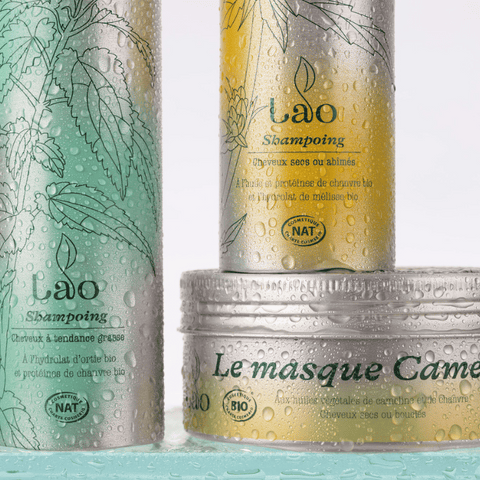
What is the difference with clean shampoos?
The term "Clean" is often used to refer to cosmetics without controversial ingredients . For a good ten years, we have seen public debates and scandals surrounding ingredients in cosmetics that are said to be dangerous, polluting, or even both (parabens, phenoxyethanol, etc.)!
A clean cosmetic is therefore a formula that does not contain these ingredients deemed unsuitable for use.
A shampoo can be natural, but not clean, or clean but not natural! Are you following us?
At LAO, when there's a doubt, there's no doubt. For safety's sake, we've decided to ban all controversial ingredients from our formulas. So, our shampoos are 100% natural, yes, but clean too!
Why choose natural shampoos?
Going natural is a bit of a philosophy of life , just like we try to go organic in our daily diet, for example. It means wanting to consume products that do not support the petrochemical industry , and it often means wanting to know that their production was done in good conditions.
It's also simply wanting healthy products for yourself , and less impactful for the environment!
Does natural mean ecological?
Unfortunately, not always . When we take from nature, or grow plants to process and use on our skin or hair, there is bound to be an impact! Natural does not mean eco-responsible , even if it does mean petrochemical-free (when we are 100% natural, and nothing less).
The impact comes from the deforestation necessary to cultivate the plants that produce oils, from irrigation, from the pesticides sometimes used, from transport to the other side of the world... This is why LAO has made a rigorous selection of natural active ingredients cultivated and produced in France , with reduced impact.
Hemp, for example, LAO's flagship plant, is grown in Alsace without water or pesticides, captures CO2 and allows us to extract oil, protein, flour... and even reuse the fibers for textiles! Finding a good shampoo, wouldn't that mean really understanding its impact on the value chain too?
How to choose the best natural shampoo?
First, it's up to you to define your criteria that will make the shampoo best for you. Perhaps you're looking for the most natural shampoo on the market ? The cleanest? Or the one that will give you the most beautiful hair, regardless of everything else?
Ideally, everything, right? That's exactly what led to the creation of LAO! Not wanting to choose between all these criteria.
To find your ideal LAO shampoo: take the hair diagnosis ! In just a few moments, get personalized advice on products, lifestyle, and nutrition.
When is a natural shampoo essential?
If you have oily hair or abnormal hair loss , using a natural shampoo can be a real solution.
Natural shampoos, especially those without sulfates, are known for being much gentler when it comes to washing . Gentle washing will help protect your scalp and leave your hair stronger and healthier throughout.
Use and tips to maximize benefits
Frequency of washing with a natural shampoo
Depending on the thickness or type of your hair, you will need to wash it more or less often. If your hair is fine and tends to be oily, wash it every 2 to 3 days . Don't leave too much time between washes or the sebum that accumulates on your scalp will damage it!
If your hair is thick, dense, or even frizzy , and doesn't have a sebum problem... you can wash it once a week ! This will also be easier for you, because your routine probably takes a lot of styling time.
Application and Rinsing Techniques
Using a natural shampoo isn't much different from using a conventional shampoo, but there are a couple of things you should know.
First of all, the foam is not at all the same as a foam created by sulfates , because it does not spread in the same way. Apply your shampoo to the roots , spreading it to the four corners of the hair , and insisting on the back of the head.
Always wash twice for maximum volume, to remove pollution and to have long-lasting, clean hair!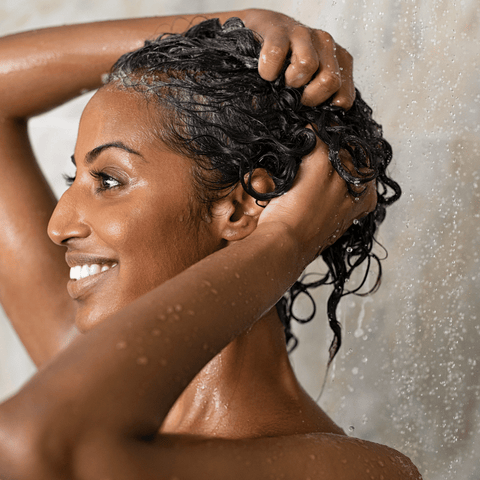
FAQ - Frequently Asked Questions about Natural Shampoos
Can you use natural shampoos on children?
Beyond 3 years , if the shampoo has no contraindications, then it can be used on children. To be able to indicate that it is possible to use shampoos on children under 3 years , the brand must have carried out specific tests. LAO natural shampoos are suitable for children over 3 years but not specifically tested on babies.
How long does it take to see the effects of a natural shampoo?
You'll see some immediate effects on the quality of your scalp and the appearance of your hair. If your scalp is damaged or prone to dandruff, you can, at best, see an immediate effect! Sometimes, however, it may take several uses or weeks to see results.
In any case, with LAO shampoo and good hair habits, you will see results and a long-term effect! The hair, protected from UV rays thanks to our patented active ingredient , will be stronger, and the scalp will be gently washed and healthier.
Are natural shampoos safe for pregnant women?
Not necessarily, because natural does not necessarily mean healthy ... It will depend specifically on what it is made of and you will have to go case by case . Some natural shampoos are rich in essential oils for example, not recommended during pregnancy!
At LAO, we have banned essential oils , even though they are not necessarily harmful, to improve safety. However, we have put a very high concentration of nettle hydrosol in the Purifying shampoo , which has caused a debate among toxicologists. As a precaution, we have preferred to advise pregnant and breastfeeding women against this product.
The brand's other treatments have no contraindications.
Other frequently asked questions about natural shampoos:
Which shampoo should I choose as the most natural?
To choose the most natural shampoo, look for products with organic ingredients and without sulfates, parabens, or silicones. The percentage of naturalness is the most reliable. Look for 100% naturalness.
Look for labels like "Bio," "Ecocert," or "Natural" to ensure a mostly natural composition.
What is the healthiest shampoo?
The healthiest shampoo is usually one that's formulated with natural ingredients that are gentle on the scalp and hair. Here are some criteria for choosing a healthy shampoo:
- Natural and organic ingredients: Choose shampoos containing naturally derived ingredients and, if possible, certified organic. This ensures a reduction in pesticides and harmful chemicals.
- Sulfate-free: Sulfates, including sodium lauryl sulfate (SLS) and sodium laureth sulfate (SLES), are strong detergents that can dry out and irritate the scalp. A sulfate-free shampoo is gentler.
- Paraben-free: Parabens are preservatives that can disrupt the endocrine system. Choose paraben-free shampoos for a healthier option.
- Silicone-free: Silicones can build up on hair and scalp, weighing them down and preventing active ingredients from penetrating.
- pH balanced: A shampoo with a pH close to that of the scalp (around 5.5) is ideal for maintaining natural balance and avoiding irritation.
- Soothing and Nourishing Ingredients: Look for shampoos enriched with ingredients like aloe vera, plant oils (argan, coconut, jojoba), plant proteins, or plant extracts to nourish and strengthen hair.
- Hypoallergenic and gentle: For sensitive scalps, a hypoallergenic and fragrance-free shampoo can be a good option.
Do anti-hair loss shampoos work?
Anti-hair loss shampoos can be effective for some people, but their effectiveness varies depending on the cause of hair loss. These products work by nourishing the scalp and strengthening hair to prevent hair loss.
However, for cases of advanced baldness or loss due to medical conditions, other treatments may be necessary.
Why do women lose hair?
Hair loss in women can be caused by various factors:
- Hormonal changes, especially during pregnancy, menopause, or due to thyroid disorders.
- Stress and anxiety.
- Nutritional deficiencies, such as a lack of iron, protein, or vitamins.
- Certain medications and medical treatments.
- Genetic factors.
- Scalp conditions such as dermatitis or psoriasis.
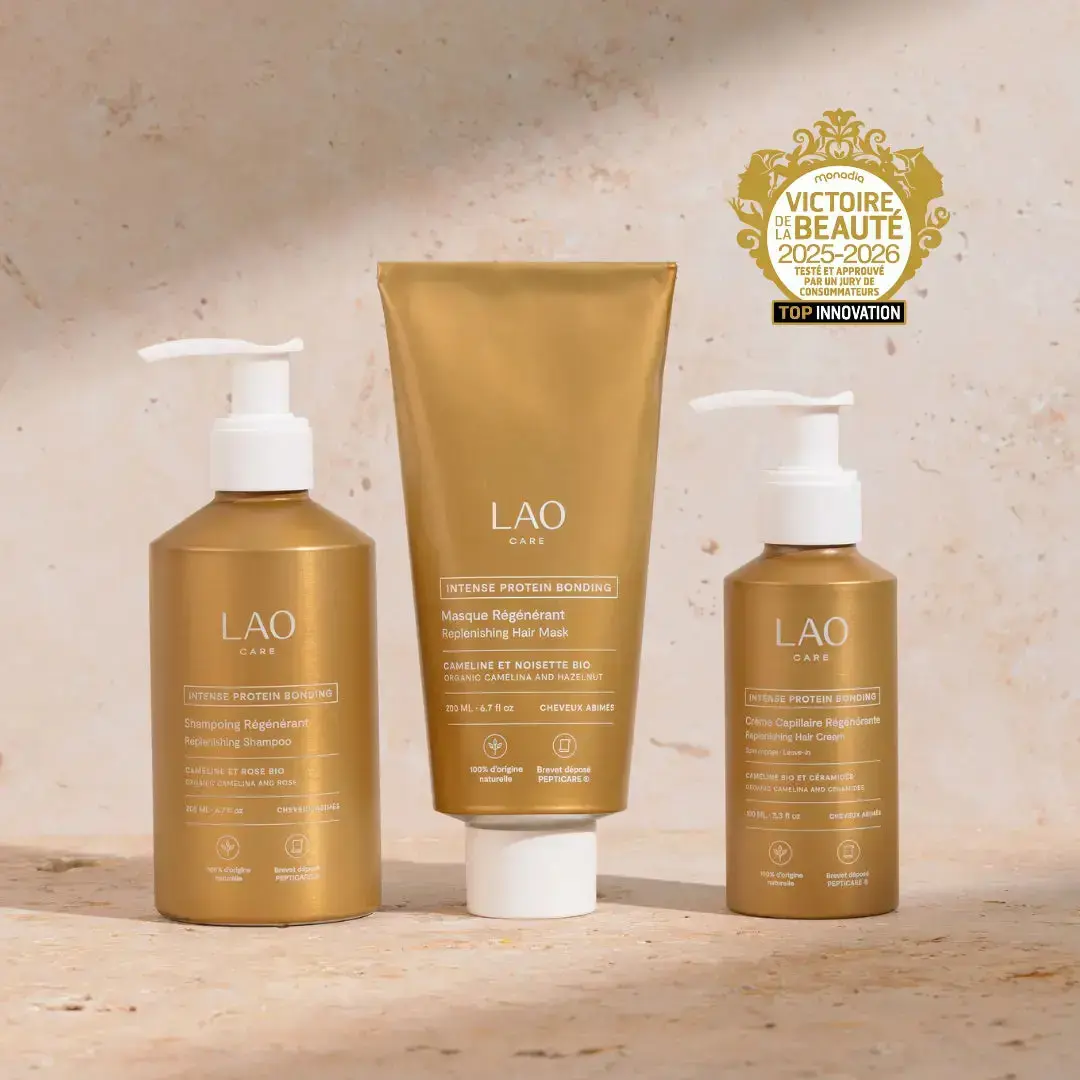
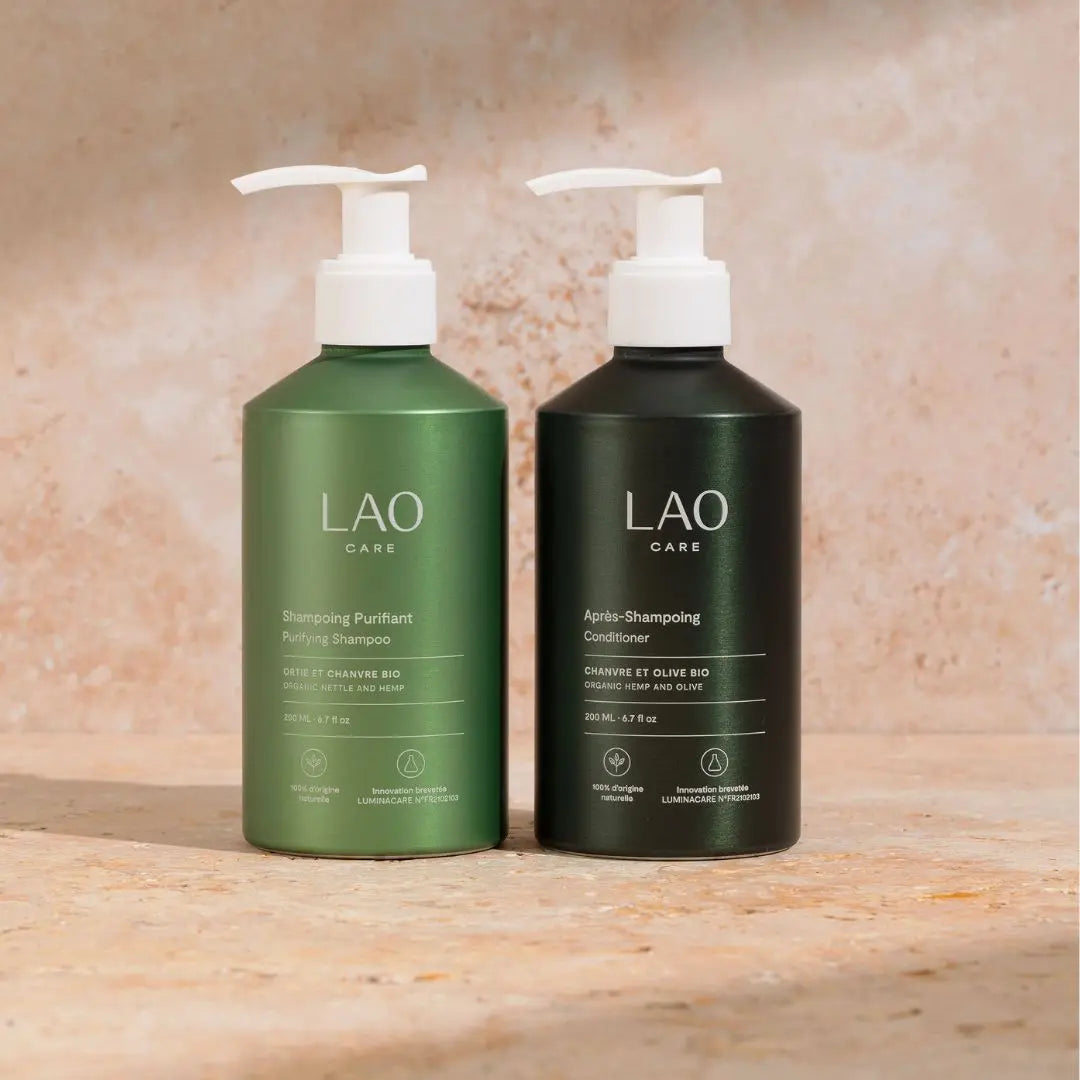
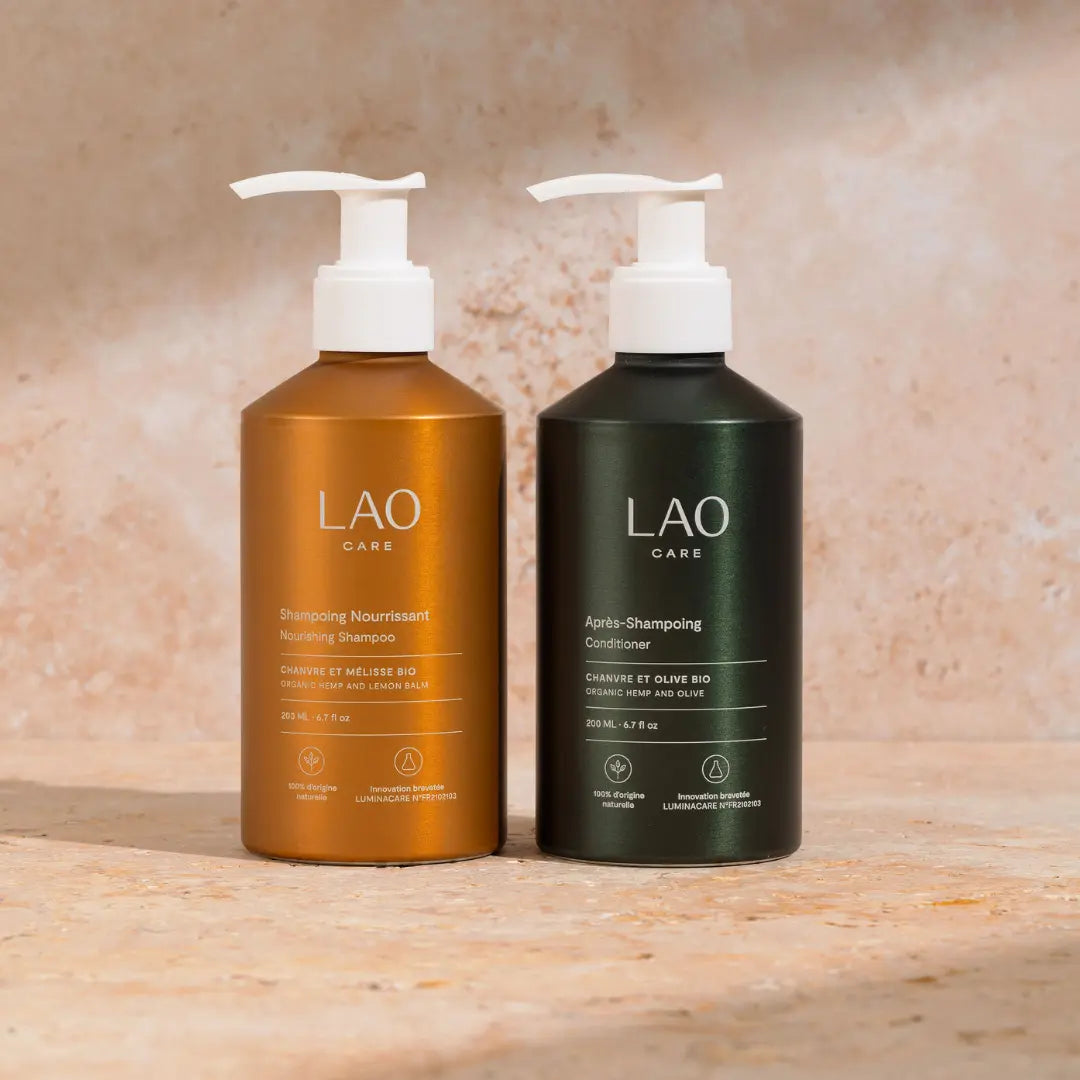
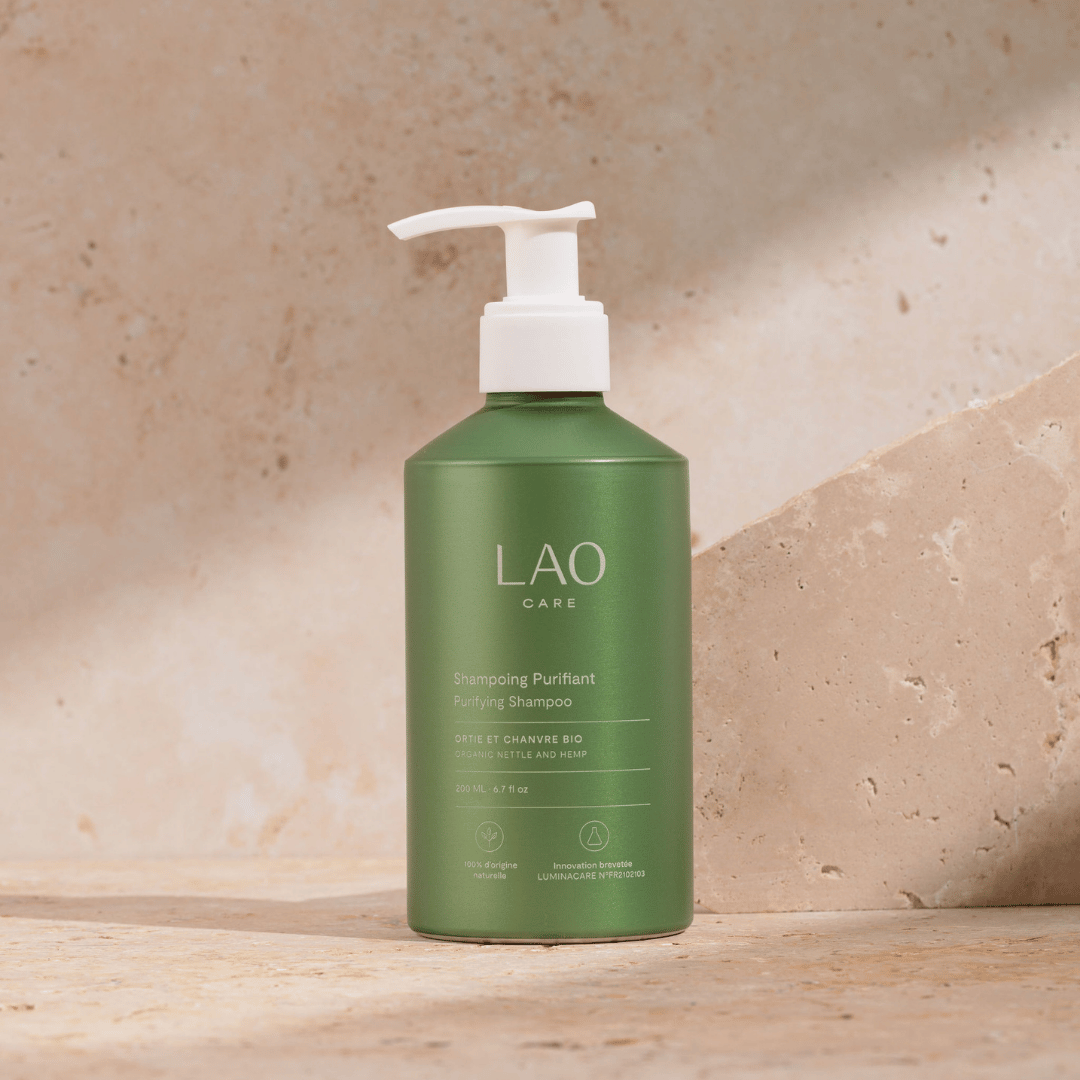
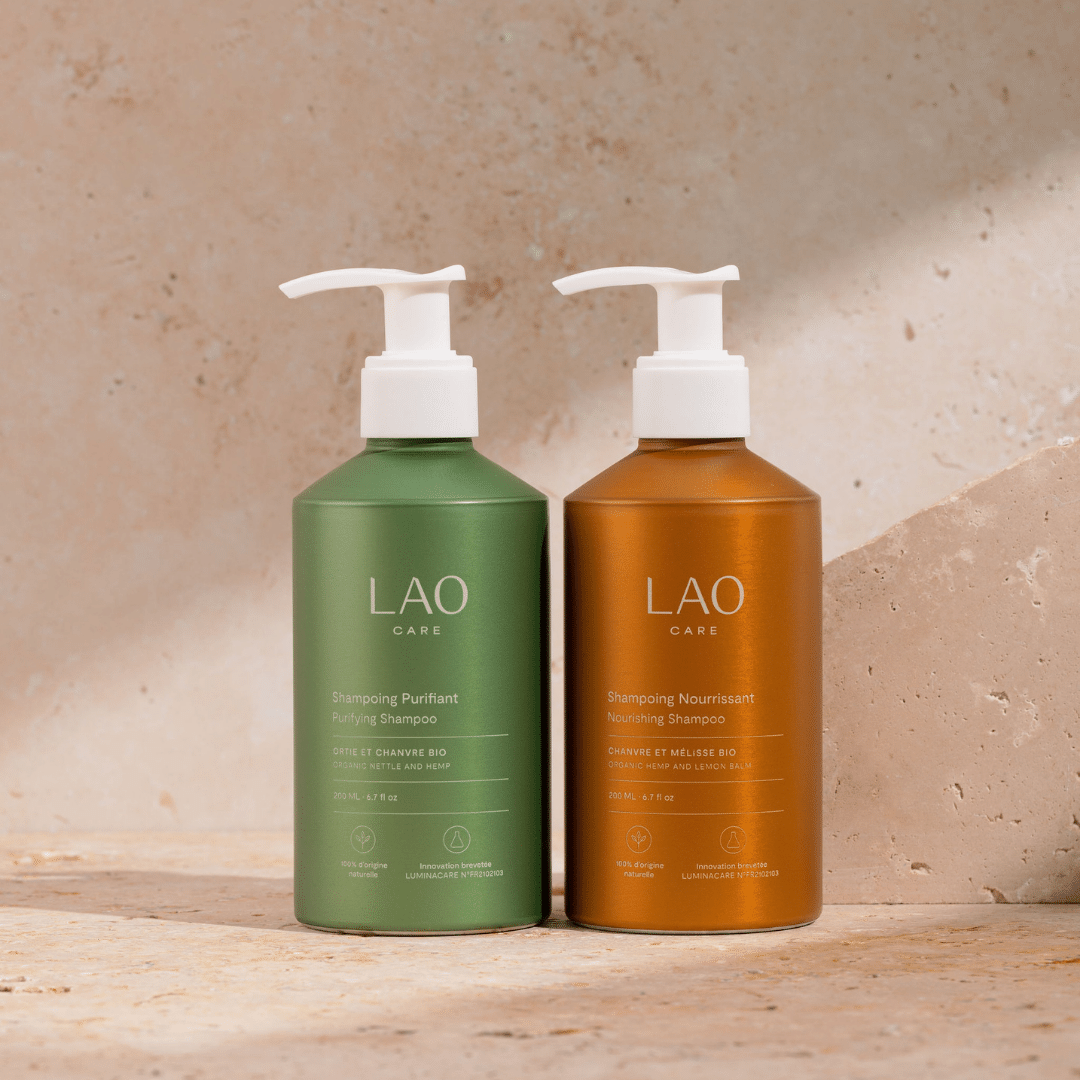
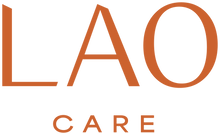

Leave a comment